Verification within Meta’s Third-Party Fact-Checking Program
A video is being spread online, allegedly showing a friend of a soldier who posthumously received the Order for Courage III degree, presenting state-provided aid to the deceased soldier’s family. In the video, the man claims that the family was given toothpaste, antiseptic, seasoning, and a sheet, adding that this is not the kind of aid the family needs.
However, this is not true. The state provides monetary compensation to the families of fallen soldiers. The items shown in the video were likely sent to Ukraine as humanitarian aid, as they cannot be purchased in Ukraine.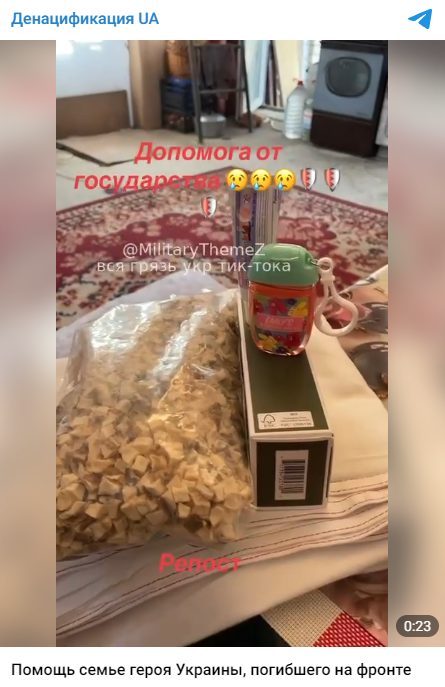
Screenshot of the post
The order shown in the video is genuine. On October 16, 2023, President Volodymyr Zelenskyi signed Decree No. 693, posthumously awarding Serhii Serhiiovych Khodyrych the Order for Courage III degree.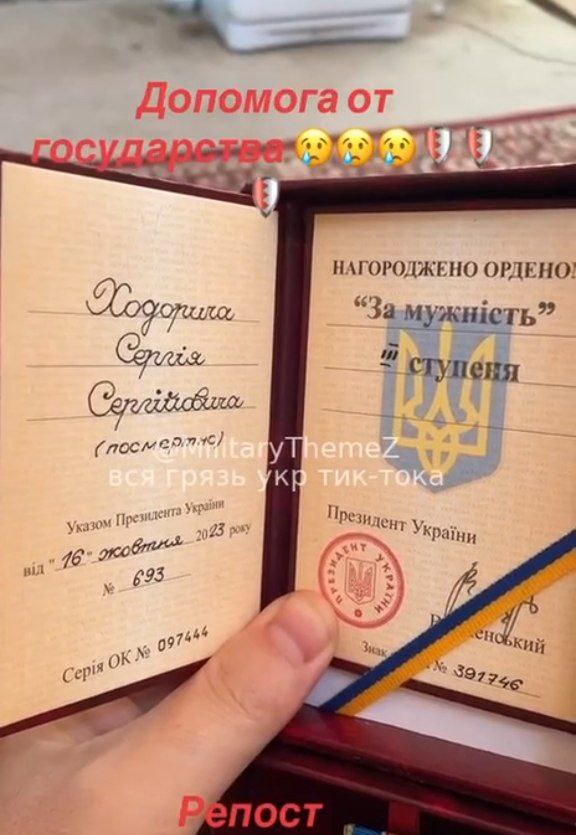
The award book shown in the video
At the same time, the aid demonstrated in the video was unlikely provided by the Ukrainian authorities. None of the items shown are produced or sold in Ukraine. For example, OraLine Bubble Gum children’s toothpaste is manufactured and sold in the USA.
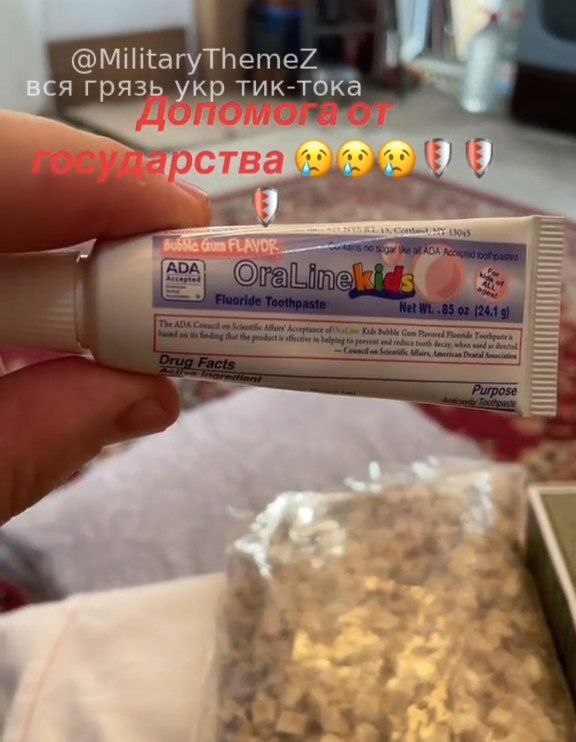
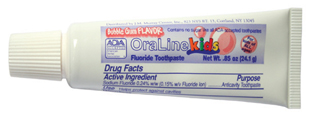
Above — the toothpaste shown in the video; below — OraLine Bubble Gum toothpaste sold in the USA
Antiseptic is also not available for sale in Ukraine, but it can be ordered from the United Kingdom.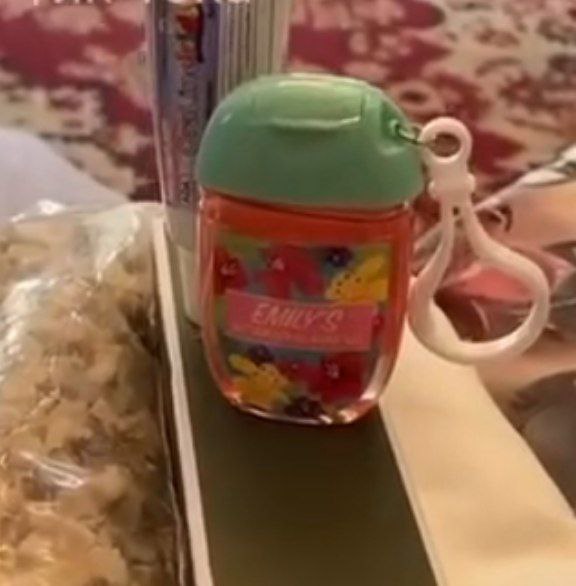
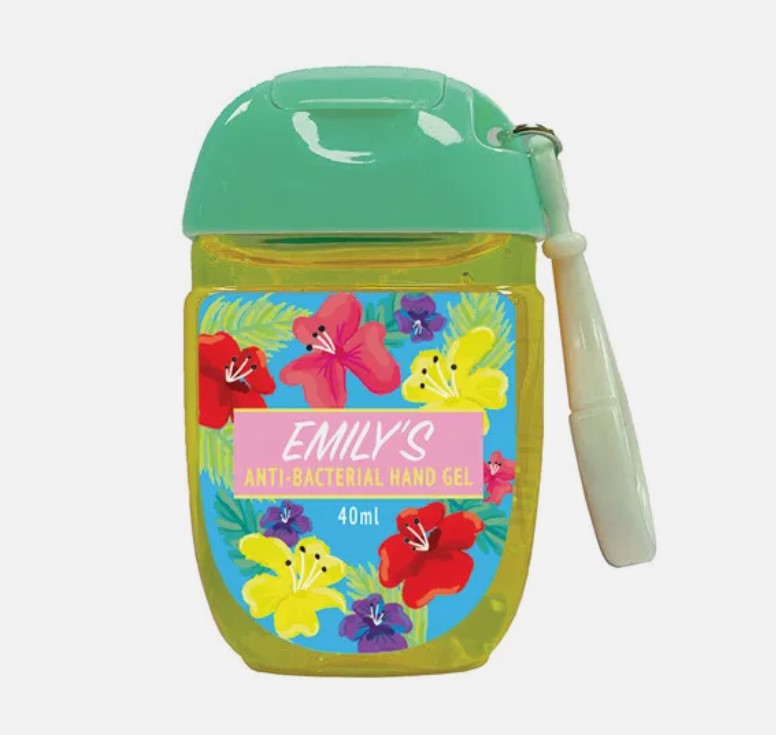
Above — the antiseptic shown in the video; below — antiseptic manufactured in the UK
The sheet shown in the video is produced by the Finnish company Sakupe, whose products are also not available for sale in Ukraine.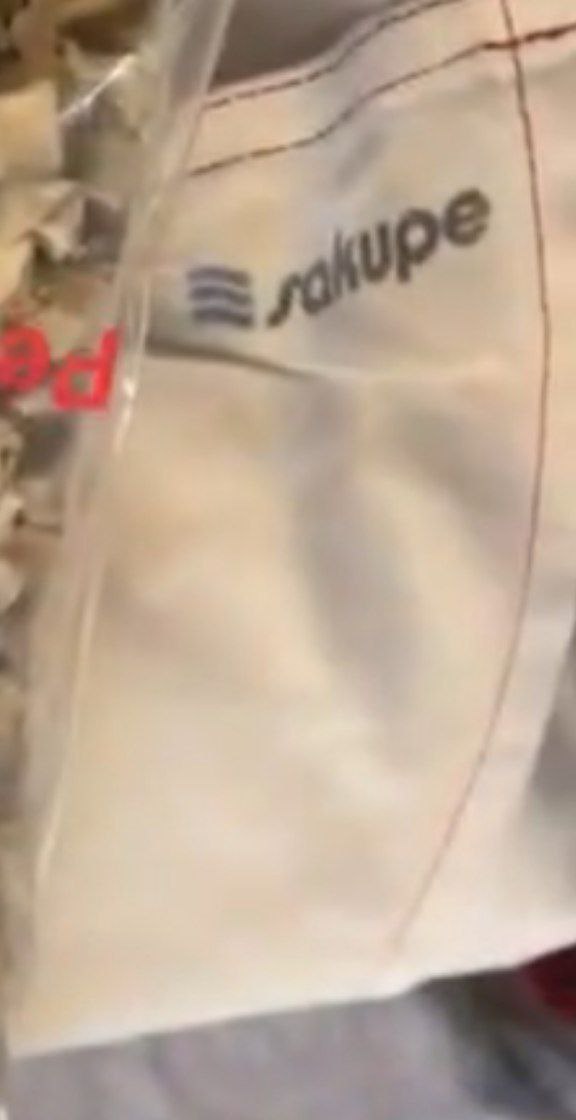
Additionally, a black box appears in the frame, but the video creator does not mention what it contains. Using the barcode, we determined that this product was also not made in Ukraine. The first three digits of the barcode indicate the country of manufacture. Ukraine’s barcode is 482, but the box in the video has a barcode starting with 117, which belongs to the USA. The video creator also mentioned seasoning among other items, but it does not have a name or barcode, making it impossible to determine the manufacturer. This “seasoning” is also not common in Ukraine.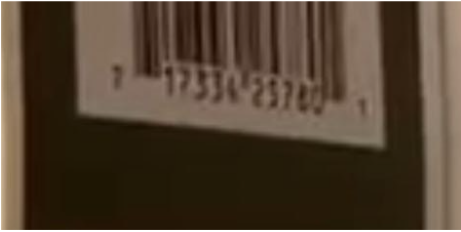
Screenshot of the video showing the product’s barcode
It is therefore highly unlikely that the Ukrainian government would purchase household items such as toothpaste or sheets from foreign companies to provide as aid to the families of fallen soldiers. It is possible that these items were sent to Ukraine as humanitarian aid, but propagandists misrepresented them as assistance from the state to the families of the fallen soldiers.
Families of Ukrainian soldiers who died on the front receive a one-time payment of 15 million UAH from the state. In case of death during service, but not in combat, the family of the soldier is provided a monetary compensation equivalent to 750 minimum living wages. As of January 1, 2024, the minimum living wage for working-age individuals is 3028 UAH, so the family of a fallen soldier receives nearly 2.3 million UAH. However, this amount may change with adjustments to the minimum living wage.
These amounts, 2.3 million or 15 million, are divided equally among all family members of the deceased. The following family members are eligible to receive these funds:
- Parents of the deceased
- One spouse, if they have not remarried
- Children under 18
- Dependents
Families of soldiers missing in action, in addition to retaining the soldier’s monthly payments (salary, military rank allowance, length of service bonuses, and other monthly additional payments), are provided an additional payment of 100,000 UAH, which was designated for participation in combat. The family loses these payments if the soldier voluntarily surrendered to captivity, deserted, or left their military unit or place of service without authorization.
Attention
The authors do not work for, consult to, own shares in or receive funding from any company or organization that would benefit from this article, and have no relevant affiliations

